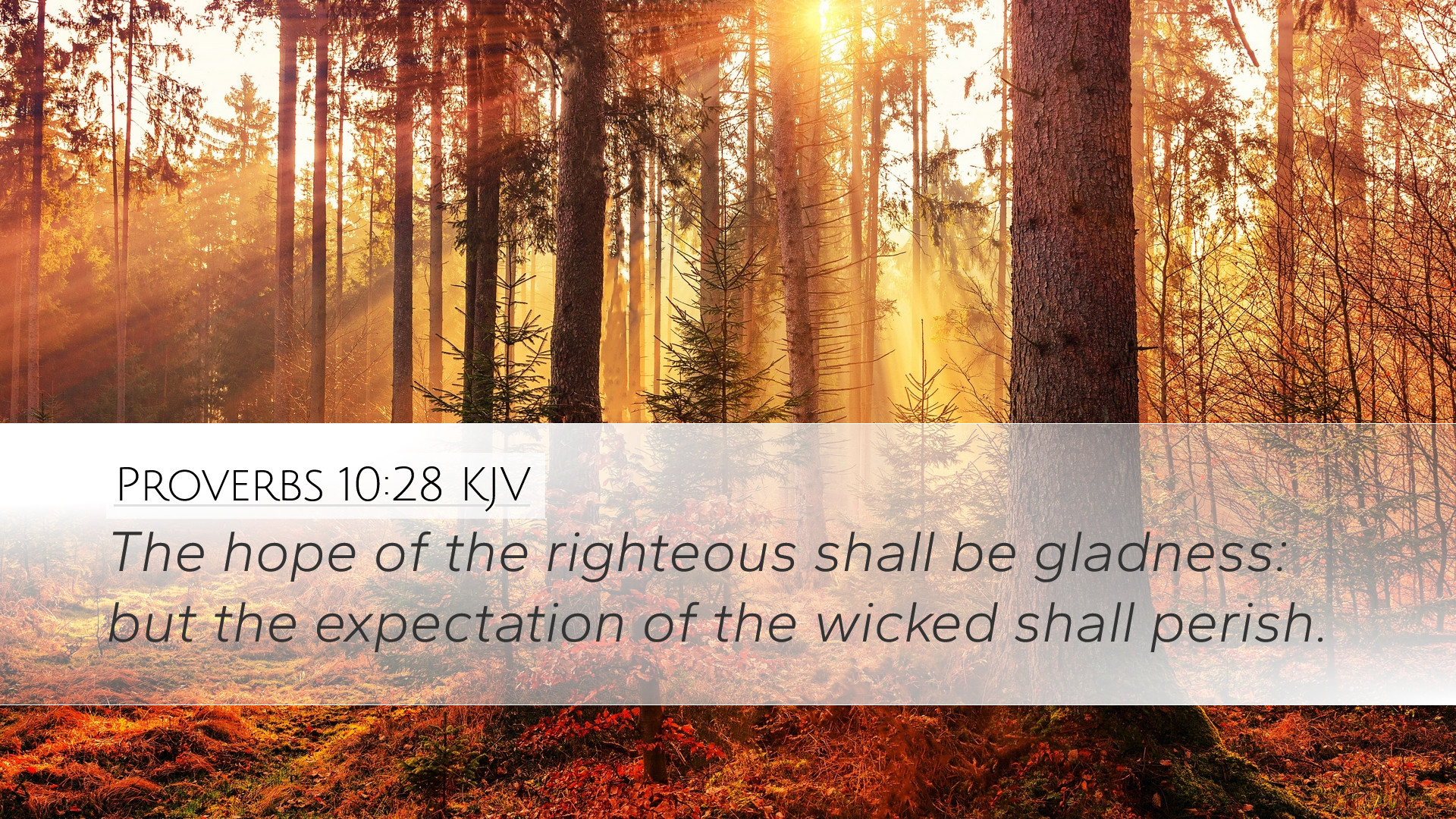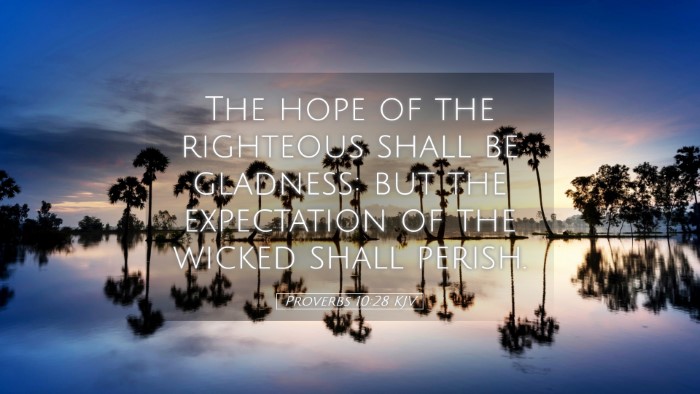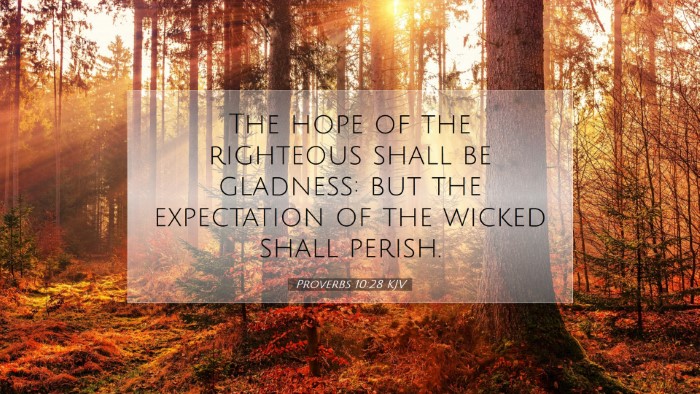Commentary on Proverbs 10:28
Proverbs 10:28 states: "The hope of the righteous shall be gladness: but the expectation of the wicked shall perish." This verse encapsulates the contrasting outcomes for the righteous and the wicked, offering profound implications for the life and conduct of those who choose different paths.
Contextual Understanding
The book of Proverbs is often recognized for its practical wisdom and moral instruction. It serves to guide the reader in living a life that aligns with God's will. This particular verse can be seen within the framework of the preceding and following verses that juxtapose the behaviors and consequences belonging to the righteous and the wicked.
Insights from Matthew Henry
Matthew Henry reflects on the joy that arises from the hope of the righteous. He views hope not merely as a wish or desire but as a confident expectation grounded in faith. Henry suggests that the righteous find gladness in their hopes because they anticipate fulfillment in God's promises, particularly concerning salvation and eternal life.
- Gladness of Hope: Henry emphasizes that the hope of the righteous is a source of true joy, an anchor that secures them amidst life's trials.
- Inversion of Outcomes: The verse serves as a stark reminder that while the righteous flourish in hope and joy, the wicked, in their expectation devoid of righteousness, face despair as their hopes ultimately culminate in disappointment.
Insights from Albert Barnes
Albert Barnes elaborates on the nature of hope within the life of the believer. He states that the hope of the righteous is characterized by a positive outlook that leads to enduring peace and trust in divine providence.
- Foundation of Righteousness: Barnes notes that righteousness brings about a deep-seated assurance, producing a sense of happiness that transcends the trials of life.
- Expectations of the Wicked: In contrast, Barnes points out that the expectations of the wicked are fundamentally flawed, lacking a firm foundation. This precariousness leads to an eventual confrontation with despair upon the realization of their unattainable desires.
Insights from Adam Clarke
Adam Clarke offers a theological reflection on the dichotomy presented in this verse, focusing on the eschatological implications of hope and expectation.
- Eternal Perspective: Clarke highlights that hope for the righteous extends beyond the temporal to encompass eternal life, making their gladness unshakeable.
- Perishing Expectations: He furthers the understanding of the wicked's expectations by emphasizing that they relate to earthly gains and desires, which are transient and ultimately lead to their downfall.
Theological Implications
This verse offers deep theological implications that can be explored further:
- The Nature of Hope: The hope highlighted is not just wishful thinking; it is a hope rooted in God’s faithfulness and the assurance of His word.
- Contrast of Destinies: The text powerfully illustrates the different destinies awaiting individuals based on their choices—righteousness leads to reward, while wickedness results in loss.
- Moral Conduct: For pastors and theologians, this verse serves as a springboard for discussions on the necessity of living a life consistent with God's righteousness, implying that one’s moral conduct directly influences their spiritual outcome.
Practical Applications
For pastors, students, and scholars, applying the truths of Proverbs 10:28 involves:
- Encouraging Righteous Living: Holding fast to biblical standards of righteousness can profoundly impact both personal and community hope.
- Preaching Hope: Ministry should focus on the hope that is found in Christ, encouraging believers to look forward with gladness rather than fear.
- Warning Against Wickedness: It necessitates a call to repentance for those lost in wickedness, reminding them of the ultimate failure of their expectations.
Conclusion
In conclusion, Proverbs 10:28 serves as a pivotal reminder of the dichotomy between the outcomes of the righteous and the wicked. The joy of hope for the righteous is a profound difference compared to the inevitable disappointment that awaits the wicked. As believers, fostering a hope rooted in righteousness not only influences our present joy but also shapes our eternal destiny.


